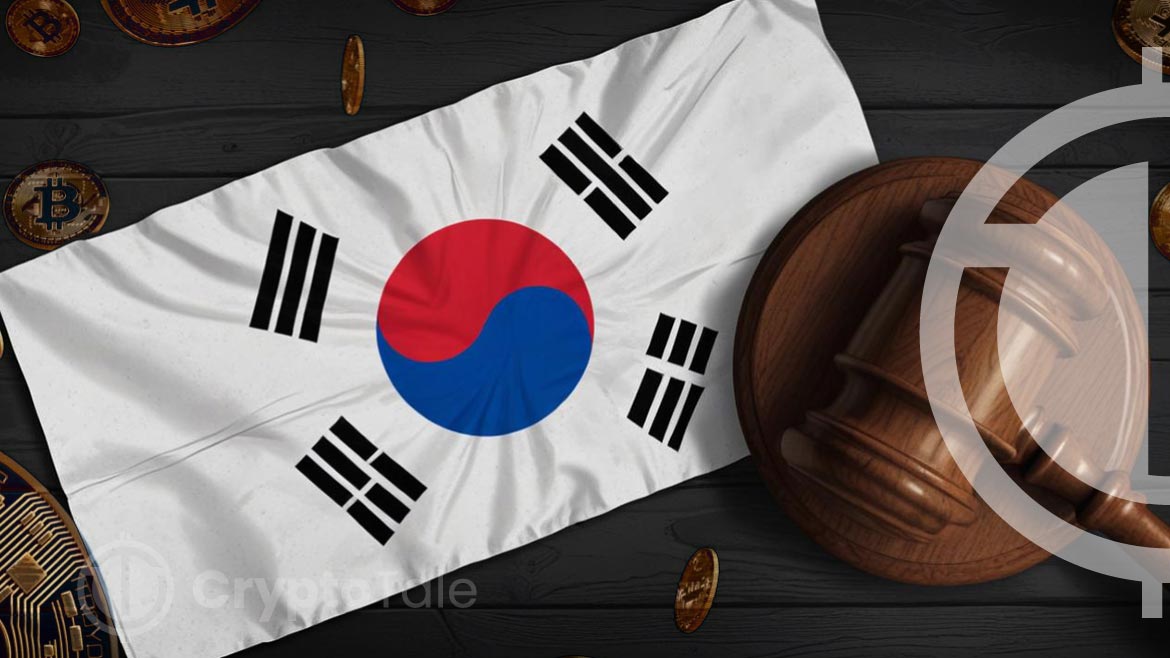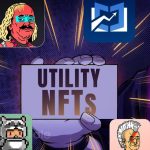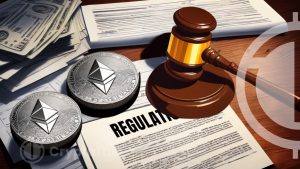
In this fast growing crypto industry, regulations play a crucial role. The cryptocurrency landscape in South Korea is undergoing significant transformations as the government introduced new regulations made at establishing a powerful regulatory framework. The upcoming virtual asset user protection act is set to take full effect on July 19, marking a pivotal moment for the crypto industry in South Korea.
South Korea’s New Crypto Law
The Virtual Asset User Protection Act is the first regulatory framework of South Korea, specifically aiming at the cryptocurrency industry. This landmark legislation focuses to eliminate illicit activities such as insider trading, market manipulation, and fraudulent transactions.
Key Provisions
One of the crucial mandats of the new law is that cryptocurrency service providers must secure over 80% of user deposits in cold storage. These major changes are designed to protect user funds from potential security breaches. Additionally service providers are required to enroll in insurance programs to compensate users in the event of security incidence full stop. This dual approach of cold storage and insurance is expected to monster investor confidence and safeguard against potential losses.
Two- Part Legislative Framework
The virtual asset user protection act is part of a broader two part legislative effort to regulate the crypto industry. While the first part focuses on user protection the second part focuses on improving information disclosure for investors. This comprehensive approach underscores the government’s commitment to fostering a transparent and secure crypto ecosystem.
Taxation and legal status of cryptocurrencies
In South Korea cryptocurrencies are not recognised as legal tender. Although cryptocurrency exchanges operate legally, they are subject to stringent regulations. Currently, cryptocurrency transactions are tax free since they are neither considered cash or financial assets. However, the ministry of strategy and finance is contemplating the introduction of a tax on crypto transaction profits, with plans to publish a taxation framework.
South Korea’s New Law to Regulate NFTs as Virtual Assets from July 19Finance Service Commission(FSC) Accept NFTs as Virtual Assets
NFTs and Virtual Assets
Financial regulators have developed rules for determining whether non-fungible tokens (NFTs) are virtual assets before implementing the Virtual Asset User Protection Act next month. It determined that NFTs released in huge numbers may be traded for other virtual assets that had a strong potential to be classified as virtual assets.
The Financial Services Commission issued the ‘Guidelines for assessing NFT virtual assets’ on the 10th June. The FSC also stated that,
If it takes the form of an NFT but is a virtual asset, the ‘Virtual Asset User Protection Act’ applies.
NFT is Excluded From Virtual Assets
The financial authorities have decided to examine first whether the NFTs fall under the ‘Capital Market Act’ or the ‘Virtual Asset User Protection Act.’ An NFT generally refers to a token containing a ‘unique’ piece of information that is ‘impossible to substitute’ for anything else.
NFTs are issued in small quantities. NFTs are primarily traded to collect content such as videos and images, so the number of holders and secondary transactions are also limited. For this reason, NFTs are excluded from the scope of virtual assets under the ‘Virtual Asset User Protection Act,’ which will come into effect on the 19th of next month.
However, the Financial Services Commission determined that, while it takes the form of NFTs, the content is more likely to correspond to a virtual asset. This occurs when NFTs are created and distributed in huge amounts, compromising their uniqueness and non-fungibility, or when they are utilized as a payment mechanism or commodity tied to virtual assets.
NFTs that should meet the following criteria are considered as virtual assets:
-When it is issued in bulk or a vast series and has a high likelihood of fungibility
-When it is divided, and its uniqueness is significantly reduced
-When it is utilized as a direct or indirect payment method for specific goods or services
-When traded for virtual assets that allow purchasing products and services or when associated contexts are exhibited, etc.
Joen Yo-seop Insights
Jeon Yo-seop, head of the Financial Innovation Planning Division at the Financial Services Commission, stated, “For instance, if approximately 1 million NFTs are issued, there is a potential for significant trading activity and utilization for payment purposes. When issued in such large quantities, these NFTs are likely to serve purposes distinct from typical collectible NFTs, potentially diverging from their original intended use.”
However, the Financial Services Commission has chosen not to use a fixed issue amount as a standard, instead considering specific circumstances on an individual basis. Instead of discriminating against new assets, it tries to assess individual cases and decide whether additional assets are needed.
Additionally, Jeon stated that,
I’m not saying that I’ll see NFTs as virtual assets, including all cases where they’ve been exchanged for other NFTs once or twice, but if anyone can exchange NFTs at any time, they’re used as a general payment method.
Impact of The New Regulation
The new legislation rules may affect Virtual Asset Service Providers (VASPs) who engage in the following commercial activities:
- Selling and buying cryptocurrency
- Crypto to crypto transfers
- Transmitting cryptocurrency
- Administration or storage of virtual assets
These applicable include custodian wallet providers, cryptocurrency exchanges, and initial coin offerings (ICOs). This Legislation regulation seeks to establish a comprehensive regulatory framework by addressing several areas of the cryptocurrency business.
South Korea Strengthens Crypto Regulation, Blocks Unlicensed Virtual Asset ExchangesPrevious Cryptocurrency Exchange Regulations
Stringent Compliance Requirements
South Korea’s cryptocurrency laws are stringent compared to other countries, with government registration and other policies operated by the country’s Financial Supervisory Service. In 2017, the South Korean government restricted the use of anonymous accounts in cryptocurrency trading. It also restricted local financial institutions from hosting Bitcoin futures transactions and raised doubts about the ban.
Use Real-Name Bank Accounts
The new regulations limit cryptocurrency trading to “real-name bank accounts,” which means that a trader (client) must open a real-name account with the same bank as their cryptocurrency dealer before depositing or withdrawing money from their e-wallet. Standard AML (anti-money laundering)/CFT laws and structured transaction reporting requirements require both the bank and the dealer to authenticate the trader’s identification.
Amendments and Licensing
In 2020, the South Korean government amended existing legislation, extending mandatory anti-money laundering and counter-terrorist financing obligations to all South Korean exchanges and requiring firms to obtain a license to operate from the Financial Services Commission’s Financial Intelligence Unit by September 30, 2021.
Importance of AML Solutions in South Korea
In South Korea, a strong focus on regulatory compliance such as AML, KYC and CDD is critical for companies looking to thrive in this competitive market. State-of-the-art Enforcement Scanner AML compliance solutions are designed to fit South Korea’s specific compliance requirements. Additionally protecting the organization from legal penalties by improving fraud detection and prevention. Sanctions Scanner ensures legal compliance and reinforces South Korea’s reputation for transparency and honesty in its competitive business environment.
To Wrap Up
Understanding these rules’ context necessitates understanding NFTs, blockchain technology, and worldwide regulatory frameworks. NFTs are unique digital assets confirmed using blockchain technology and frequently used to represent ownership of digital or physical goods. Virtual assets, such as cryptocurrencies, are digital representations of wealth that can be exchanged or transferred electronically. Governments across the globe are increasingly concentrating on regulating these assets to safeguard consumers and prevent fraud.
South Korea has aggressively regulated the cryptocurrency industry, and the creation of the Virtual Asset User Protection Act demonstrates the government’s attempts to provide a legal framework to safeguard consumers while ensuring financial stability. Different nations take different ways of regulating NFTs, with the U.S., Japan, and Germany offering frameworks depending on the application and features.














